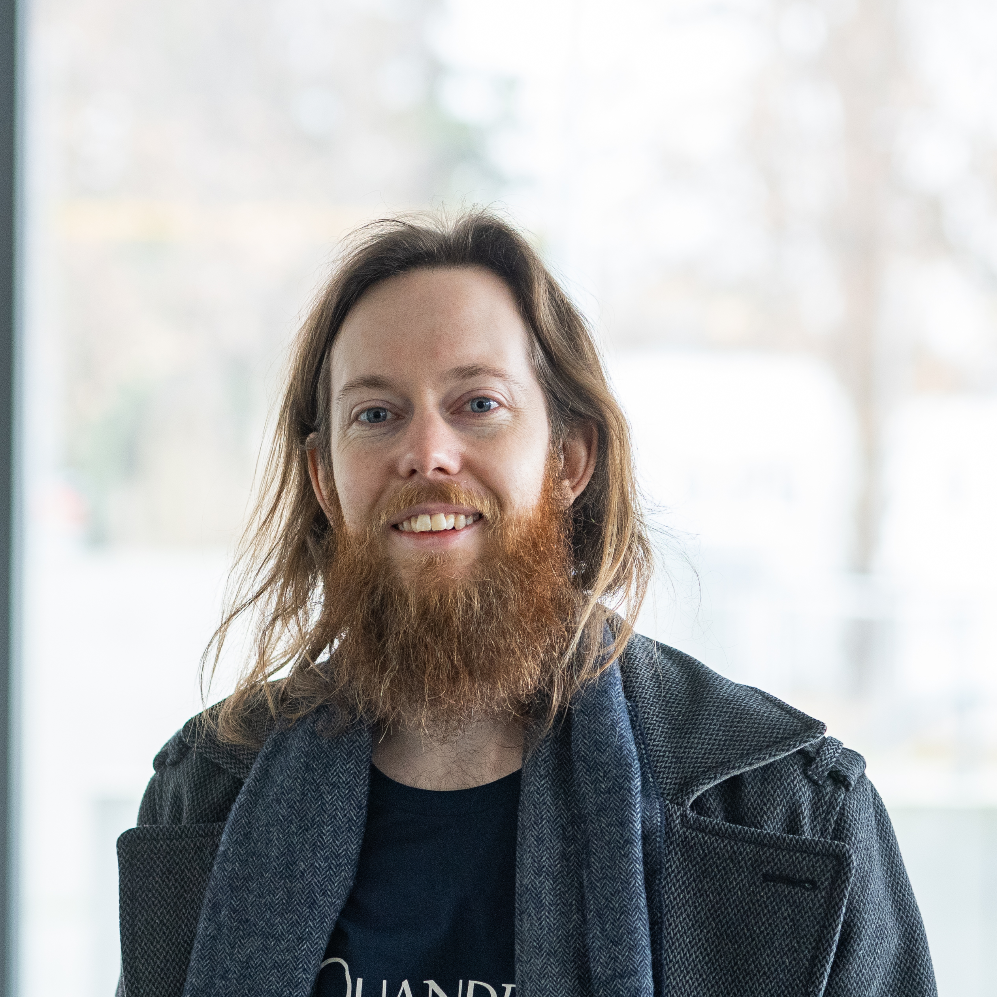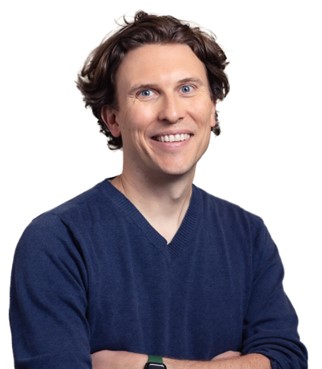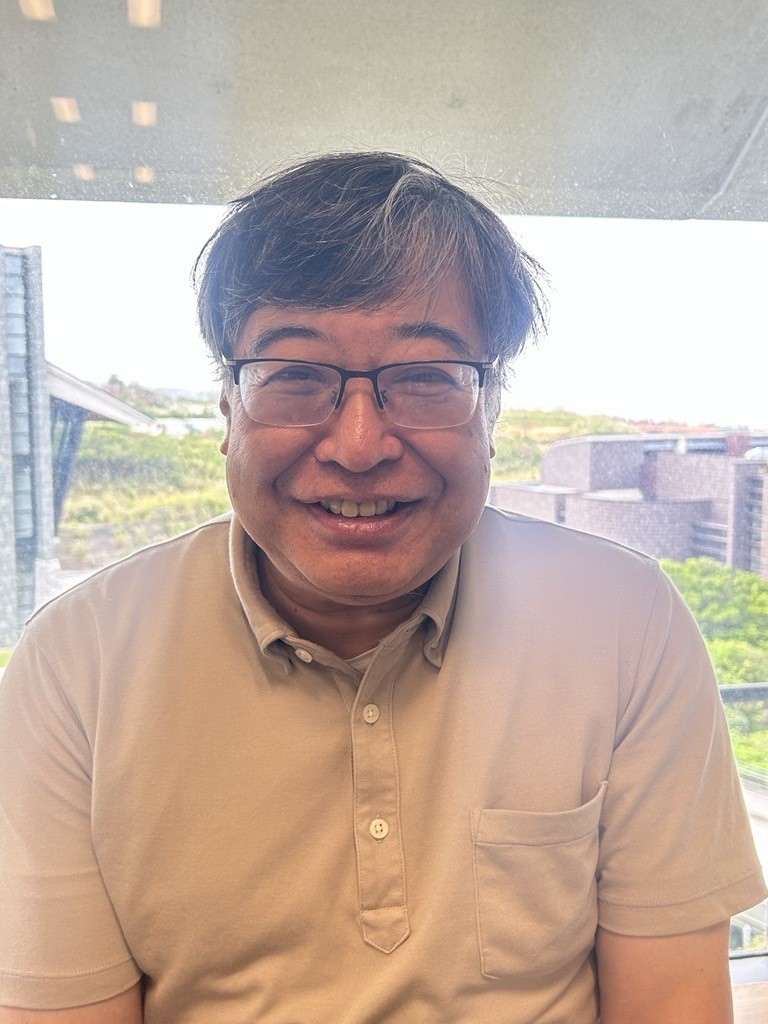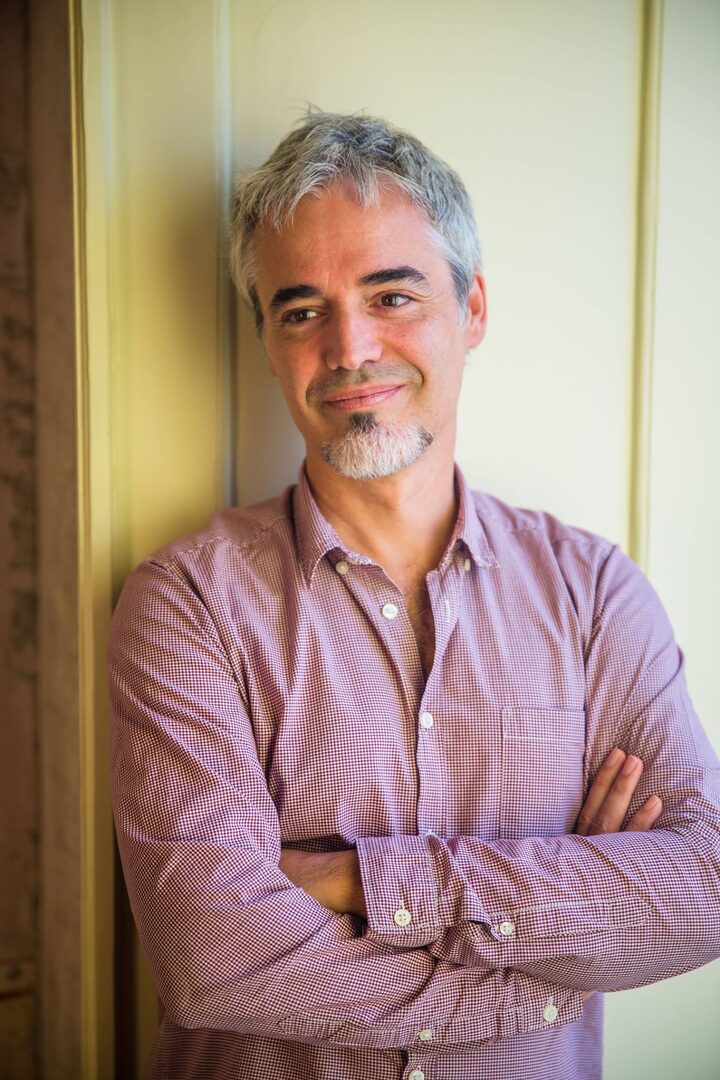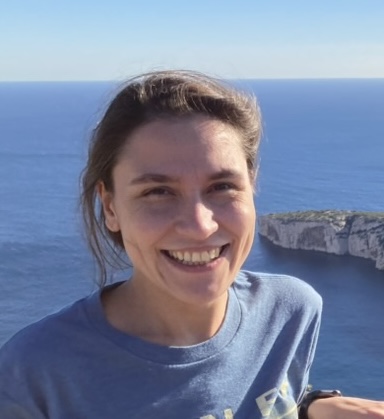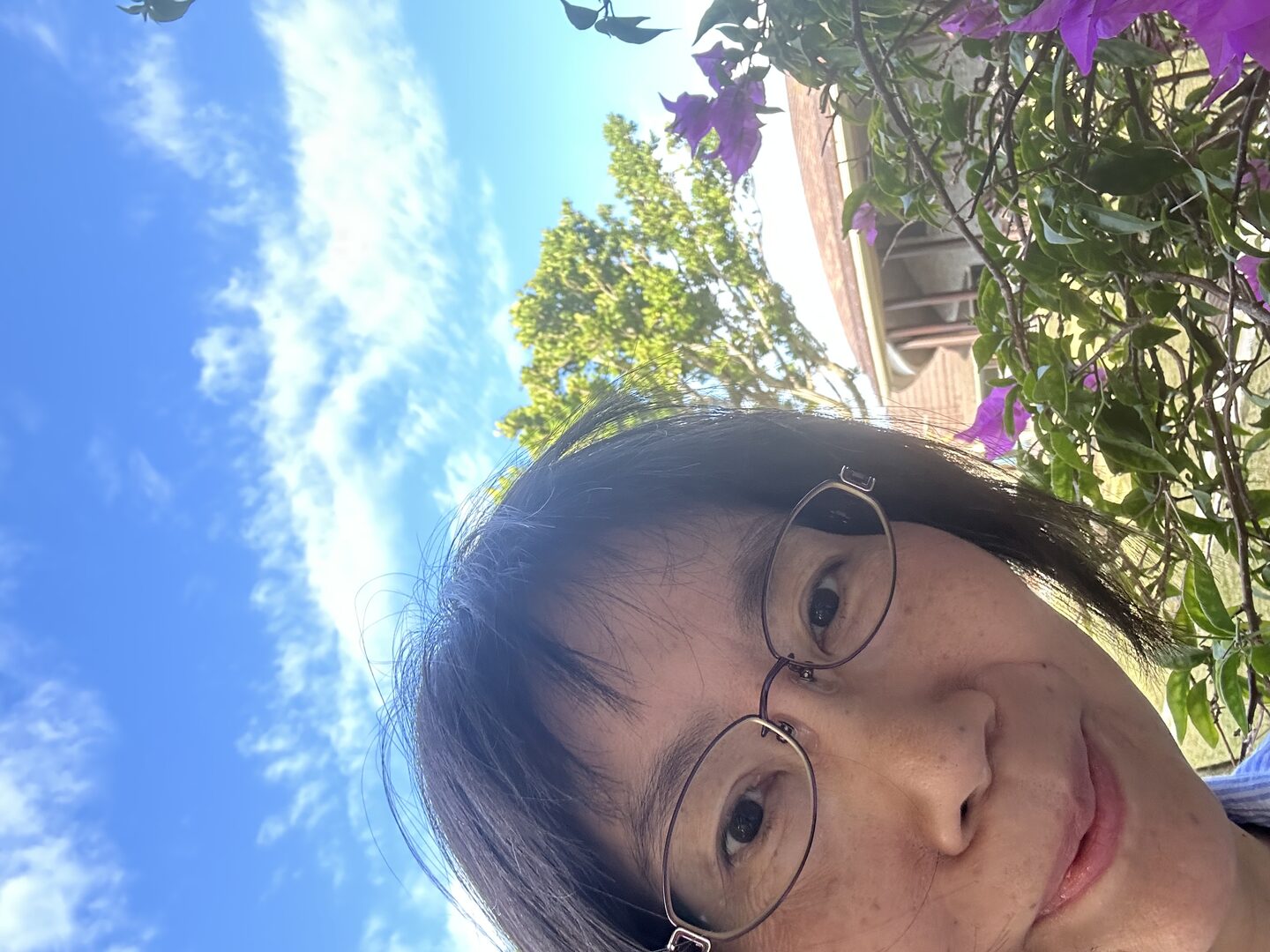Current and Upcoming Visitors
All current and upcoming visitors are listed below, while past visitors can be found here.
The visitors' profiles can be found further down. Profiles of Thematic Programs can be found on their respective websites linked below.
| Name (Home Institution) |
Arrival | Departure | Field | Units of Interest | |
| Roslyn Ellen Taplin (SOAS University of London) |
2025-03-30 | 2025-06-28 | Environmental Management, Interdisciplinary education for SDGs | Twamley | VS |
| Chuliang Song (UCLA) |
2025-03-23 | 2025-04-23 | Biology, Ecology, Mathematics, Quantitative Ecology, Species Coexistence, Rapid Evolution | Armitage, Dieckmann, Economo, Pigolotti | VS |
| Jonathan Brundan (University of Oregon) |
2025-03-01 | 2025-05-30 | Mathematics, Representation Theory | Speyer | VS |
| THEMATIC PROGRAM Computational and Physical Understanding of Biological Information Processing |
2025-02-24 | 2025-03-16 | Evolutionary Biology |
Abdulla, Armitage, Bandi, De Schutter, Dieckmann, Doya, Economo, Fried, Froese, Fukai, Fukunaga, Goda, Ishikawa, K. Tanaka, Kiyomitsu, Kondrashov, Liu, Masai, Myers, Pigolotti, Reiter, Saze, Stephens, T. Takahashi, Terenzio, Uusisaari, Watanabe, Wickens, Yamamoto, Yazaki-Sugiyama, Zhou |
TP |
| Anna Katharina Suzuki-Klasen (FernUniversität Hagen) |
2025-01-04 | 2025-03-29 | Law, Comparative Contract Law, New Technologies | A | |
| Kohei Suzuki (Durham University) |
2025-01-04 | 2025-03-29 | Mathematics, differential geometry, partial differential equation, probability and stochastic analysis | Liu, Zhou | VS |
| Claire Wyart (Sorbonne University) |
2025-02-16 | 2025-03-04 | Biology, Neuroscience, Sensorimotor integration, motor control, navigation | Laudet, Masai, Stephens | EVS |
| Feng Liu (University of Utah) |
2024-12-13 | 2025-01-20 | Marine Science, Physics, condensed-matter physics, quantum materials | Dani, Narita, Okada, Qi, Shannon | VS |
| Johnatan Aljadeff (UCSD) |
2024-12-12 | 2025-02-01 | Neuroscience, Physics, Dynamical systems and statistical physics modeling of neural networks | Doya, Fukai, Pao, Reiter, De Schutter | VS |
| Mihnea Bostina (Otago University) |
2024-12-07 | 2025-12-06 | Biology, Structural Biology, Virology | Bandi, Chakraborty, Husnik, Kusumi, Wickens, Yamamoto, Wolf, Sitsel | VS |
| Kian Ming (DSO National Laboratories, Singapore) |
2024-12-02 | 2025-02-28 | Artificial Intelligence, Machine Learning, Statistical Analysis | Yamada | A |
| Yanfa Yan (University of Toledo) |
2024-12-02 | 2025-02-28 | Material Science, Energy Materials | Narita, Qi | VS |
| Anna Pachol (University of South-Eastern Norway) |
2024-12-01 | 2025-02-28 | Mathematics, Physics, Quantum, mathematical/theoretical physics, Quantum Gravity | Höhn, Neiman, Toriumi | VS |
| Sputniko! (Artist / Entrepreneur / Tokyo University of the Arts) |
2024-11-25 | 2024-12-12 | Art, Impact of Technology on Society | A | |
| Ahmed Elhady (Konstanz University) |
2024-11-22 | 2024-11-30 | Biology, Ecology, Neuroscience, Physics, Behavioral modeling, stochastic biology | Pigolotti, Reiter | A |
| Avadh Saxena (Los Alamos National Laboratory) |
2024-11-17 | 2024-01-31 | Condensed matter physics, material physics, quantum physics, nonlinear science | Bandi, Chakraborty, Dani | A |
| Matthias Salzger (Gdańsk University) |
2024-11-16 | 2024-11-30 | Quantum, Quantum foundations and information | Nic Chormaic, Elkouss, Höhn, Speyer, H. Takahashi | A |
| Oliver Schraidt (Iberian Nanotechnology Laboratory) |
2024-11-12 | 2025-01-11 | Cryo-Electron Microscopy | Sitsel | A |
| Iliona Wolfowicz (Freelance Grant Writing Consultant) |
2024-11-12 | 2025-01-11 | Cnidarian Biology, Cnidarian-Algal Symbiosis | Sitsel | A |
| Hiroaki Gomi (NTT Communications Science Laboratory) |
2024-11-09 2025-01-13 |
2024-11-22 2025-01-28 |
Neuroscience, Sensorimotor Control/Learning, Visuomotor Control | Doya, Tani | DV |
| Susumu Ariki (Osaka University) |
2024-11-04 2025-03-02 |
2024-11-29 2025-03-29 |
Mathematics, Representation Theory | Speyer, Toriumi | DV |
| Ana Belen Sainz (Gdańsk University) |
2024-11-01 | 2025-04-30 | Physics, Quantum Foundations, Quantum Information Theory | Nic Chormaic, Ekert, Elkouss, Höhn, Nemoto, Speyer, H. Takahashi | VS |
| John Selby (Gdańsk University) |
2024-11-01 | 2025-04-30 | Quantum, Quantum foundations and information | Nic Chormaic, Elkouss, Höhn, Speyer, H. Takahashi | VS |
| Shyam Srinivasan (University of California) |
2024-11-01 | 2025-10-31 | Biology, Computer Science, Neuroscience, Evolution, Quantitative Anatomy, Sensory Neuroscience | Goda, Pao | VS |
| James Berg (Allen Institute for Neural Dynamics) |
2024-10-28 | 2025-02-15 | Neuroscience | Doya, Fukunaga, Kuhn, T. Takahashi, Yamada, Yoshida | VS |
| Il Memming Park (Champalimaud Foundation) |
2024-10-20 | 2025-02-28 | Engineering and Applied Sciences, Neuroscience, Recurrent neural network, machine learning, neuro AI | Doya, Fukai, Hikami, Pao, Pigolotti, Uusisaari | VS |
| Jamie Kass (Tohoku University) |
2024-10-13 | 2024-10-20 | Ecology, Biodiversity Modeling | Economo | C |
| Sarah Butcher (University of Helsinki) |
2024-10-08 | 2024-10-25 | Structural Biology, Electron Microscopy | Kondrashov, Sitsel, Wolf | C |
| Keiko Aoki (Tokyo) |
2024-09-12 | 2024-12-12 | Material Science, Mathematics, Physics, Molecular dynamics simulation | Bandi, Chakraborty, Hikami, Husnik, Liu | DV |
| Haruka Matsumoto (Technical University of Denmark) |
2024-09-02 2024-12-17 |
2024-11-06 2025-03-31 |
Marine Sciences, Engineering, Atmosphere and Ocean Data Analysis |
Ravasi | DV |
| Michael Hausser (University College London) |
2024-09-05 2025-01-29 |
2024-09-08 2025-02-05 |
Biology, Marine Science, Neuroscience, Computational neuroscience, Neural Computation | Dieckmann, Doya, Economo, Ekert, Fukai, Fukunaga, Goda, Kuhn, N. Luscombe, Miller, Reiter, Rokhsar, De Schutter, T. Takahashi, Uusisaari, Watanabe, Wickens, Yoshida | EVS |
| Kenneth Goodenough (University of Massachusetts Amherst) |
2024-08-26 | 2024-9-25 | Quantum Networking, Entanglement | Elkouss, Munro, Nemoto | A |
| Miguel B. Araújo (Spanish National Research Council) |
2024-08-21 | 2025-01-20 | Biogeography, Climate Change, Ecology | Armitage, Dieckmann, Economo, Mitarai, Neiman, Pao, Pigolotti, Ravasi, Yamada | VS |
| Cintia Pacchiano (Calgary University) |
2024-08-19 | 2024-12-13 | Mathematics, Mathematical Analysis, Theoretical Aspects of Nonlinear Partial Differential Equations | Liu, Zhou | VS |
| Havva Yoldas (Delft University of Technology) |
2024-08-07 | 2024-11-30 | Mathematics, Analysis of Partial Differential Equations, Kinetic Theory, Mathematical Biology | Abdulla, Kiyomitsu, Liu, Meitinger, Zhou | VS |
| Raphael Winter (Cardiff University) |
2024-08-07 | 2024-10-30 | Mathematics, Mathematical Physics, Kinetic theory | Abdulla, Liu, Zhou | VS |
| Koji Fujiwara (Kyoto University) |
2024-08-13 | 2024-09-30 | Mathematics, Geometry, Topology, Geometric group theory | Feichtner-Kozlov, Hikami, Zhou | DV |
| THEMATIC PROGRAM Neuromodulation of Adaptive Learning |
2024-07-04 | 2024-08-11 | Neuroscience | De Schutter, Doya, Fukai, Fukunaga, Goda, Kuhn, Reiter, Tani, Wickens, Uusisaari, Yazaki-Sugiyama | TP |
| Erich Bornberg-Bauer (Münster University and Max Planck Institute in Tübingen) |
2024-06-26 | 2024-08-16 | Chemistry, Theoretical Biochemistry, Evolution, Origins of Life, Structural Biology, Genomics | Bourguignon, Kondrashov, Laudet, Laurino, N. Luscombe, Pääbo, Rokhsar | VS |
| Joshua Goldberg (The Hebrew University of Jerusalem) |
2024-06-23 | 2024-09-03 | Neuroscience, Cellular and systems neurophysiology, neurodegenerative diseases; Computational Neuroscience | Abdulla, Doya, Fukai, Pigolotti, Wickens | VS |
| Desiree Förster (University of Chicago) | 2024-06-16 | 2024-08-09 | Media Theory, Philosophy of Science, and Sensory Studies | Froese | A |
| Pedro Lopes (University of Chicago) |
2024-06-16 | 2024-08-09 | Computer Science, Neuroscience, Human-Computer Interaction | Froese, Qi, Shen, Tani | VS |
| Lucy Lai (Harvard University) |
2024-06-03 | 2025-06-02 | Neuroscience, Computational Cognitive Neuroscience | Doya, Tripp | VS |
| Manfred Schartl (Universität of Würzburg) |
2024-06-04 | 2024-06-09 | Biology, cancer genetics, vertebrate genetics and sex evolution |
Laudet, N. Luscombe, Ravasi, Kiyomitsu, Masai, Sallan, Economo, Bourguignon, Kono
|
C |
| Sergii Strelchuk (University of Cambridge) |
2024-05-31 | 2024-08-30 | Mathematics, Quantum, Quantum computing, quantum simulation, quantum algorithms and information theory | Busch, Ekert, Elkouss, Myers, Nemoto, Shannon | VS |
| Rieko Osu (Waseda University) |
2024-05-27 | 2024-06-10 | Neuroscience, Cognitive neuroscience, Computational neurorehabilitation, Motor control and learning, Neurodiversity | Doya, Froese, Fukai, Tani, Tripp, Uusisaari | DV |
| Riku Nakazato (Waseda University) |
2024-05-27 | 2024-06-10 | Neuroscience, Cognitive neuroscience, Computational neurorehabilitation, Motor control and learning, Neurodiversity | Doya, Froese, Fukai, Tani, Tripp, Uusisaari | A |
| Han Zhao (University of Illinois Urbana-Champaign) |
2024-05-26 | 2024-08-25 | Computer Science, Machine Learning | Yamada | VS |
| Nick Luscombe (MSCTY) |
2024-05-20 | 2024-06-30 | Soundscapes | Fukunaga | A |
| Hirokazu Shirado (Carnegie Mellon University) |
2024-05-20 | 2024-08-19 | Computer Science, Sociology, Computational Social Science, Human-Computer Interaction, Social Networks | Dieckmann, Froese, Reiter, Tani, Yamada | VS |
| Florian Yger (Paris-Dauphine University) |
2024-05-20 | 2024-08-15 | Computer Science, Machine Learning | Pao, Yamada | A |
| Louise Hespel (Rouen University) |
2024-05-20 | 2024-08-15 | Chemistry, Material Science, polymer | C. Luscombe, Yamada | VS |
| Christophe Claramunt (Arts et Métiers Institute of Technology) |
2024-05-18 | 2024-05-23 | Computer Science, Geographical Information Science | Yamada, Armitage | A |
| Srikanth Ramaswamy (Newcastle University) |
2024-04-30 | 2024-08-29 | Computational Neuroscience, Neural Networks Modeling, Big Data, Deep Learning, Artificial Neural Networks | De Schutter, Doya, Fukai, Fukunaga, Goda, Kuhn, Reiter, Tani, Wickens, Uusisaari, Yazaki-Sugiyama | VS |
| Anthony Genot (University of Tokyo) |
2024-04-29 | 2024-05-12 | Chemistry, Engineering and Applied Sciences, DNA nanotechnology | N. Luscombe, Shen | DV |
| Sona Roy (University of Tokyo) |
2024-04-28 | 2024-05-12 | Chemistry, Engineering and Applied Sciences, DNA nanotechnology | N. Luscombe, Shen | A |
| Canberk Sanli (University of Cambridge) |
2024-04-17 | 2024-06-30 | Theoretical High Energy Physics | Hikami, Neiman, Toriumi | A |
| Yuzhe Li (Nara Institute of Science and Technology) |
2025-01-07 2025-02-02 |
2025-01-25 2025-04-12 |
Computer Science, Neuroscience, Computational Neuroscience | Doya, Kuhn | DV |
| Aaron Chan (Nagoya University) |
2024-04-14 | 2024-11-30 | Mathematics, Representation theory of finite-dimensional algebra and related categorical structures | Speyer, Toriumi | DV |
| Luiza Angheluta (University of Oslo) |
2024-04-06 | 2024-04-25 | Theoretical Physics | Pigolotti, Chakraborty, Konstatinov, Gioia, Rosti, Shen, Fried, Touber | A |
| Keiko Aoki (Tokyo) |
2024-04-05 | 2024-06-28 | Material Science, Mathematics, Physics, Molecular dynamics simulation | Bandi, Chakraborty, Hikami, Husnik, Liu | DV |
| Shinichi Aizawa (Hiroshima University) |
2024-04-03 | 2024-04-19 | Biology, Physics, Bacterial flagella | Kusumi, Wolf | DV |
All visitors give presentations during their stay at OIST. You can find details about upcoming seminars and lectures on the Events page. You can also subscribe to this iCal calendar containing all talks.
Visitor Profiles
Here are the profiles of visitors currently on campus.
Anna Pachol
Office at OIST: Lab 5 EF03e
Anna Pachol is an associate professor at the University of South-Eastern Norway. Her research focuses on noncommutative geometry approach to quantum gravity, including intersection of topics from theoretical and mathematical physics such as quantum groups (Hopf algebras), quantum Riemannian geometry, deformation theory in applications to quantization of spacetime and deformations of relativistic symmetries. Currently she works on investigating the consequences of spacetime noncommutativity and Planck scale effects in quantum mechanical systems by introducing modifications to the canonical Heisenberg commutation relations and to the uncertainty principles. Her recent work also includes studying new models of noncommutative quantum phase spaces which include both noncommutative spacetime coordinates as well as noncommutative momenta with additional deformation terms included in both of these sectors.
Previously she was a senior lecturer at Queen Mary University of London and postdoctoral researcher at Universities of Turin and Iceland. She obtained her PhD in 2011 at the University of Wroclaw.
Ana Belen Sainz
Office at OIST: Lab 5 EF03k
Ana Belen Sainz is currently a Group leader at the International Centre for Theory of Quantum Technologies, University of Gdańsk, Poland. Her research interests lie in the intersection of quantum foundations and quantum information theory. She strives to assess the landscape of nonclassical physical theories – some of which may supersede quantum theory – and how they may enable new forms of communication or information processing. Ana Belen is also active in Equity, Diversity, and Inclusion initiatives, committed to building a safe and diverse scientific community. She received her PhD from the Universitat Politècnica de Catalunya, Spain, in 2014, carrying out her PhD thesis at ICFO - The Institute of Photonic Sciences, Spain. Prior to that she completed her MSci in Physics at Universidad Nacional de Córdoba, Argentina.
John Selby
Office at OIST: Lab 5 EF03k
John Selby is a team leader at the International Centre for Theory of Quantum Technologies at the University of Gdańsk, Poland. He and his team work on a range of topics in the foundations of quantum theory and quantum information, with a particular focus on the use of compositional, diagrammatic approaches in these fields. Previously he was a postdoctoral researcher at Perimeter Institute, Canada, primarily working on formalizing foundational notions of nonclassicality and understanding their role in quantum information processing. He received his PhD from Imperial College London in 2018.
James Berg
Office at OIST: Lab 5 EF03n
Jim is the Director of Scientific Operations for the Allen Institute for Neural Dynamics. He joined the Allen Institute for Brain Science in 2012, where he led a team to use the Patch-seq technique to catalogue the electrophysiological, morphological, and transcriptomic profile of thousands of neurons from mouse and human brain sections, publicly released as part of the Allen Cell Types Database. Previously, he studied the role of the TMEM16A ion channel in pain processing and engineered a genetically encoded fluorescent sensor for ATP. Jim joined the Allen Institute for Neural Dynamics in 2020 as the Director of Scientific Operations (also employee #1), where he and his team work to support and accelerate the work of the scientific groups. Jim has two kids (Orion (10yo) and Maylin (7yo)) who keep him very busy.
Susumu Ariki
Office at OIST: Lab 5 EF03
Susumu Ariki is currently a Professor Emeritus of Mathematics at Osaka University and a visiting senior scientist at Kavli Institute for the Physics and Mathematics of the Universe. He has been studying representations of algebras arising in Lie theory. In order to study those algebras, he has successfully applied (i) categorification of integrable highest weight modules over affine Kac-Moody Lie algebras and their quantum groups, (ii) the Auslander-Reiten theory and Adachi-Iyama-Reiten's tau-tilting theory, (iii) recent advances in the theory of Brauer graph algebras, etc. He is currently working on the comparison of his categorification with other categorification.
Miguel B. Araújo
Office at OIST: Lab 5 EF03m
Miguel B. Araújo is a biogeographer dedicated to understanding how Life distributes in space and time, and why. He employs a wide range of modelling approaches to explore how climate influences the distributions of species and controls complex properties and dynamics of communities. He is a Research Professor of the Spanish Research Council (CSIC) and Chair of Biodiversity at the University of Évora. In the past, he also held faculty or research positions at the Imperial college London, Oxford University, University of Copenhagen, French National Research Council (CNRS), and the Natural History Museum in London. Personal Website
Cintia Pacchiano
Office at OIST: Lab 5 EF03g
Cintia Pacchiano has a PIMS Post-doctoral Fellowship at the University of Calgary. Her research area is mathematical analysis, more precisely, theoretical aspects of nonlinear partial differential equations (PDEs). Her primary focus is on regularity theory of elliptic and parabolic PDEs, in connection with the calculus of variation and potential theory. Most recently, analysis on metric measure spaces forms a central aspect of her work, as it provides an integrating structure for ideas and questions from many different areas of mathematics.
Havva Yoldas
Office at OIST: Lab 5 EF03q
Havva Yoldaş is an assistant professor at the Delft Institute of Applied Mathematics, TU Delft in the Netherlands. Her research focuses on analysis of partial differential equations (PDEs) arising from applied sciences. She is particularly interested in well-posedness and long-time behaviour of PDEs appearing in structured population dynamics (neuron population models, growth-fragmentation equations etc.), kinetic theory (Boltzmann-type equations, run and tumble equations for bacterial chemotaxis) and coupled PDE models such as cross-diffusion systems for competing species. Personal website
Keiko Aoki
Office at OIST: Lab 5 EF03p
Keiko Aoki is an independent researcher based in Tokyo. Her main research field is condensed matter physics, and her main tool for research is molecular/particle dynamics simulation.
Since anisotropically fluctuating systems, such as liquid crystals and soft matter could not be properly treated by conventional molecular dynamics (MD) methods, we have developed a set of simulation methods which are called stress control methods. Stress control MD methods guarantee the system to be under hydrostatic pressure (or other condition) even in non-equilibrium processes. Time evolution under constant surface tension can be investigated by one of the stress control methods as well. This is in contrast to conventional MD methods, where only ensemble average can be controlled. The method is effective to investigate self-organization of soft matter, as well as glassy metastable states. ORCID ID






